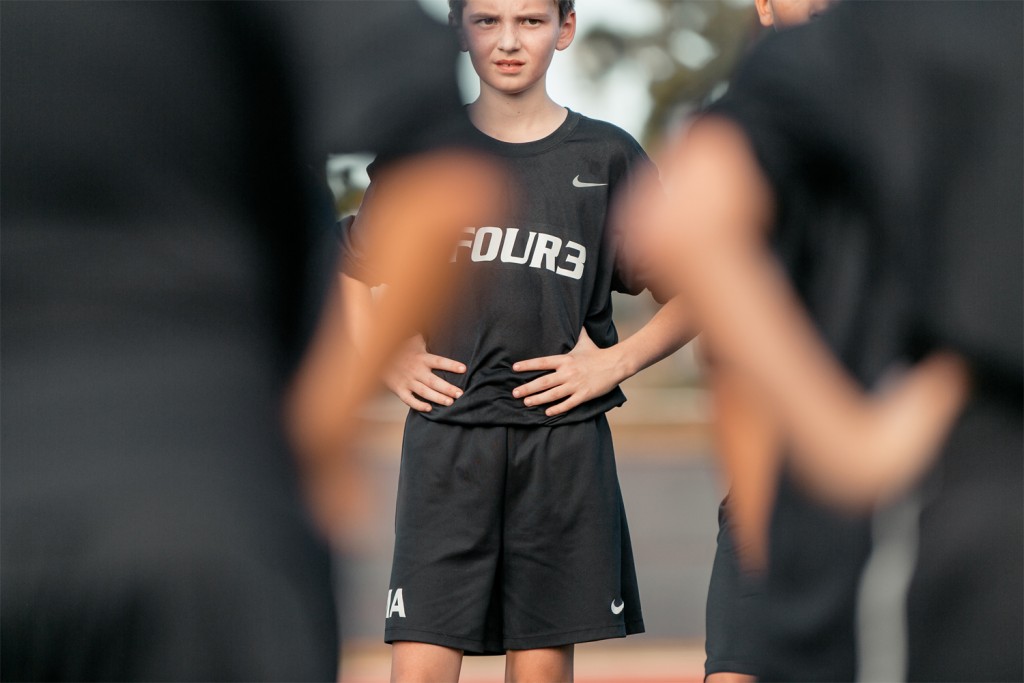
On this episode, Pete Stuart and I take a deep dive into the world of youth soccer.
Pete is a 3four3 coaching member and someone that Gary and I had the pleasure of meeting during a trip we took to Denver in 2016.
During this episode, Pete talks about his start as a youth coach and also his evolution to where he is at now. He has a unique program in Colorado and is currently working alongside coaches from Barcelona. It might not be as glamorous as you think when you hear the word “Barcelona” but the story is interesting and what Pete is taking away from it is remarkable.
Of course, we talk about some problems.
We talk about coaching education. We talk about recruiting. We talk about how to handle certain situations and the different approaches and solutions we each had.
It’s been a wild year for the podcast, but it’s great to get back to the roots of this show and talk exclusively about youth soccer.
Enjoy this episode with Pete Stuart!

Also, don’t forget to subscribe to 3four3 FM on Apple Podcasts or Stitcher.
I have written before to Gary and actually text messaged the author of this podcast about the US Soccer Licensing course using Brian’s team footage…. in my opinion stealing his work and pawning it off as something derived form a US coaching course. Screamed inauthentic. Which sadly is where we are as a coaching nation, less you ascribe to a higher ideal… and find yourself here.
.
I am glad to know I was not the only one…. who sat there and thought, isn’t this interesting.
Joel,
I didn’t get the impression that the course was “pawning it off as something derived from a US coaching course.” In my course, taught by the DOC of CO Soccer Assn, it was presented as “hey look at what kids are capable of if they get good coaching.” And of course I agreed. Look what they’re capable of! Amazing!
BUT… BUT!
I can tell you with 100% certainty that if I ran any exercise from the 3four3 coaching curriculum during a USSF license course, I would FAIL. No question. Now, isn’t THAT interesting.
Thanks for listening Joel. Hope you got something out of it.
Great discussion. I’d be interested in more details.
1. When Pete says his club grew from something like 12 to 300 kids in 18 months because the parents liked ‘what we were doing’, what exactly are they doing?
2. How much of a player’s development do you think is on the player and how much is on coaches? I got the sense that Pete thinks coaching is most of it, but John thinks more of it on the player with heavy influence from coaching. Is that accurate?
3. Do either of you work with players with less than mild interest or do you weed them out in try-outs? If you do work with such players, any tips on motivating and developing them.
Hey Seth,
Thanks for reaching out. Let’s get in to your questions…
1. Three former FCB Escola technical directors from Barcelona moved to Denver to start an academy, it’s called B-Elite. I joined them as one of their first coaches. What we are doing is training youth players with a Spanish philosophy in a Spanish methodology. Our coaches are American and we operate under the close guidance of the Spanish technical directors. The directors write every training session, they are present at every training session for every team and they constantly jump in to give coaching points to players or guidance to coaches. What’s differentiating to our academy is that we develop a common identity in our club. We teach the same stuff from the bottom to the top and at all ages. Parents and players recognized the benefit of this right away, and here we are.
2. You’re right. I do thing that in our culture and in our environment here in the US, the responsibility for development swings heavily toward the coach. However, I also strongly believe that if a player wants to reach even a moderately high level, they must be working on their own and developing their abilities outside a structured environment. A coach is a guide. In the end, it’s up to the player.
3. I have worked with recreational players in the past, but I prefer not to do it anymore. It’s important for me to have player and coach commitment levels aligned. I would say that a kid with only a mild interest would not want to be coached by me, and vice-versa. It’s not that I don’t put importance on recreational play, it’s just that I’m not interested in putting my time into that particular situation right now.
That said, I absolutely do have some tips for motivation and development. No matter the AGE of the players, you have to determine the LEVEL. Adjust your coaching to bring the level up incrementally, and you will have a happy and engaged player. For example, maybe you have a team of 14 year olds who struggle to control the ball and pass with sense. Instead of thinking, “oh these kids are U15 and they should be playing from the back and making coordinated midfield movements by now” try to develop sessions that will give them comfort on the ball; practice strong, accurate passes; do really basic stuff; forget about the advanced tactics. You can’t teach algebra to somebody who doesn’t understand addition.
Pete — Thanks for the reply! Very helpful. You read my mind on that last one.
Good stuff!